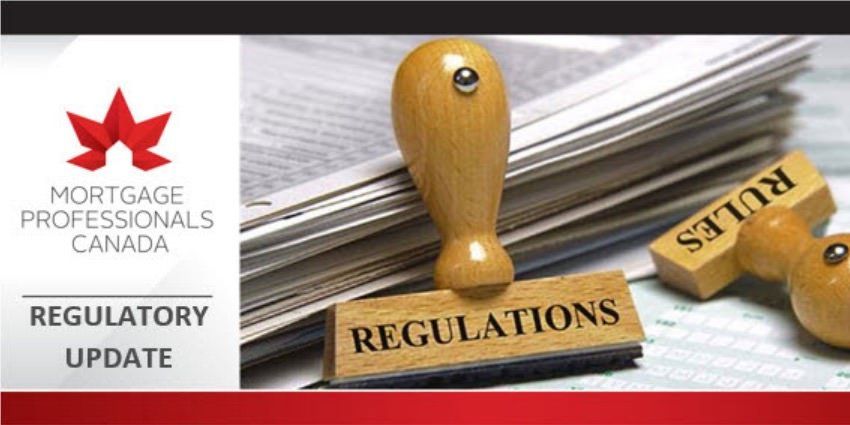More Oversight for Mortgages in Canada?
Although no firm changes have been announced regarding mortgage regulations, it looks like this might be the beginning of something. The following is correspondence shared by Mortgage Professionals Canada by email to the mortgage industry, it has been shared here for your benefit.
The Office of the Superintendent of Financial Institutions (OSFI) issued a letter this morning to all federally regulated financial institutions (FRFI). The letter expresses concern about the rising levels of household debt in Canada and serves to remind FRFIs of their obligations under Guidelines B-20 and B-21 to assess and underwrite mortgage loans and mortgage insurance in a prudent manner.
The letter states:
Given the current economic environment in Canada, with record levels of household indebtedness and growing risks and vulnerabilities in some housing markets, OSFI’s supervisory scrutiny in the area of mortgage underwriting will continue. Moving forward, OSFI will place an even greater emphasis on confirming that financial institutions conduct prudent mortgage underwriting, and that their internal controls and risk management practices are sound and take into account market developments.
Highlights
OSFI has identified the following five specific areas that it expects lenders to consider diligently during their underwriting process:
Income Verification
Due diligence processes for lenders must be in place. Inadequate income verification can adversely affect the assessment of credit risk, anti-money laundering and counter terrorist financing (AML/CTF) compliance, capital requirements and mortgage insurability. More stringent due diligence for incomes outside of Canada should be applied, and there should not be any reliance on collateral values as a replacement for income validation.
Non-Conforming Loans
OSFI warns that the 65% loan-to-value threshold should not be considered a demarcation point below which, sound underwriting practices and borrower due diligence do not apply; a borrower’s character and capacity to service the loan should always take precedence over the value of collateral when underwriting mortgage loans or insurance.
Debt Service Ratios
Incomes should be conservatively calculated and appropriately questioned. In particular, rental incomes from the underlying property should be critically examined. OSFI also suggests that relying on current posted five-year interest rates to test a borrower’s ability to service its obligations does not represent an adequate stress test in a rising interest rate environment.
Appraisals and LTV Calculation
OSFI suggests that rapid house price increases create more uncertainty about the reliability of property appraisals. Institutions should use appraisal values and approaches that provide for a conservative LTV calculation, and not assume that housing prices will remain stable or continue to rise.
Risk Appetite and Portfolio Management
OSFI’s supervisory work indicates that the risk profile of newer mortgage loans is generally on the rise. OSFI reminds mortgage lenders and mortgage insurers to revisit their Residential Mortgage Underwriting Policy and Residential Mortgage Insurance Underwriting Plan regularly to ensure a stringent alignment between their stated risk appetite and their actual mortgage/mortgage insurance underwriting and risk management practices.
OSFI’s letter further states that they are working on various capital policy initiatives to strengthen the measurement of capital held by the major banks and mortgage insurers to ensure their ability to weather losses from residential mortgage defaults. New measures are targeted for implementation in November 2016 and January 2017 respectively. Risk Sensitive Floors, Capital Requirements for Mortgage Insurers, and BCBS Revisions to the Standardized Approach for Credit Risk are each included in these reviews.
We are pleased that OSFI is committed to consultations with our industry prior to the implementation of these new rules. Mortgage Professionals Canada will be involved in these discussions and we will keep you informed of any developments.
This article was originally published by Mortgage Professionals Canada and was included in an email correspondence.
Katherine Martin
Origin Mortgages
Phone: 1-604-454-0843
Email: kmartin@planmymortgage.ca
Fax: 1-604-454-0842
RECENT POSTS






